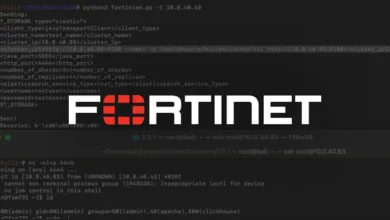AI Skills Key to Solving Cybersecurity Skills Gap: Fortinet

▼ Summary
– 87% of cybersecurity professionals expect AI to enhance their roles and provide efficiency amid skill shortages, but they require upskilling to maximize its potential.
– 86% of organizations experienced at least one cyber breach in 2024, with the skills gap being a key contributor to rising breach rates and financial costs exceeding $1 million for many.
– Boards are increasingly prioritizing cybersecurity, with 76% focusing more on it in 2024, but fewer than half fully understand the risks posed by AI.
– Organizations highly value certifications, with 89% of IT decision-makers preferring to hire certified candidates, though employer funding for certifications has declined.
– The cybersecurity skills gap is linked to a global shortfall of over 4.7 million professionals, necessitating investments in training, hiring practices, and advanced technologies to build resilience.
Mastering artificial intelligence skills has become a critical requirement for closing the persistent cybersecurity skills gap, according to Fortinet’s latest research. The 2025 Global Cybersecurity Skills Gap Report reveals that while AI promises to revolutionize security operations, organizations struggle to implement it effectively due to insufficient expertise among their teams.
The comprehensive survey highlights that eighty-seven percent of cybersecurity professionals anticipate AI will enhance their roles by improving efficiency and providing relief during staffing shortages. However, they emphasize that proper training is essential to maximize these benefits. Organizations increasingly recognize AI’s dual nature—it can strengthen defenses but also empower attackers with more sophisticated methods.
Several concerning trends emerged from the research. Insufficient cybersecurity awareness and training remains the primary cause of security breaches, while board members often lack adequate understanding of cyber risks despite prioritizing security. The preference for certified cybersecurity professionals remains strong, with eighty-nine percent of hiring managers favoring candidates with relevant certifications.
Carl Windsor, Fortinet’s Chief Information Security Officer, stressed the urgency of addressing these challenges. “This year’s survey reinforces the critical need to invest in cybersecurity talent development,” he noted. “Without meaningful progress in closing the skills gap, organizations will continue experiencing increasing breach frequencies and escalating costs. We’ve reached a pivotal moment where both public and private sectors must take decisive action to cultivate and retain cybersecurity expertise.”
The report establishes clear connections between the skills shortage and growing security and financial risks. Cyberattacks have evolved from potential threats to near-certain events, with eighty-six percent of organizations experiencing at least one breach during 2024. Nearly one-third reported five or more incidents, representing a significant increase from 2021 figures. More than half of surveyed organizations attributed these breaches directly to insufficient security skills and training.
Financial impacts remain substantial, with fifty-two percent of organizations reporting breach costs exceeding one million dollars in 2024. This maintains the concerning trend from previous years and shows a sharp increase from 2021’s thirty-eight percent.
AI implementation presents both opportunities and challenges for security teams. An impressive ninety-seven percent of organizations either use or plan to deploy AI-enabled security solutions, particularly for threat detection and prevention. While eighty percent of respondents acknowledge AI’s effectiveness in enhancing team performance, nearly half cite insufficient AI expertise as their primary implementation barrier.
Notably, seventy-six percent of organizations experiencing nine or more cyberattacks in 2024 had AI tools deployed, indicating that technology adoption alone cannot compensate for expertise gaps.
Boardroom attention to cybersecurity continues growing, with seventy-six percent of boards increasing their focus on security issues during 2024. Nearly all organizations now recognize cybersecurity as both a business and financial priority. However, board understanding of AI-related risks remains limited, with fewer than half of respondents indicating their boards fully comprehend AI’s potential threats.
Certification remains highly valued in addressing the skills gap. Employers view certifications as validating cybersecurity knowledge, demonstrating current industry understanding, and indicating familiarity with essential tools. Despite this recognition, organizational support for certification funding has declined from eighty-nine percent in 2023 to seventy-three percent currently.
The report concludes that closing the cybersecurity skills gap requires fundamental changes in hiring practices, better utilization of available talent pools, and increased investment in training programs. A coordinated approach focusing on awareness building, expanded training access, and advanced technology adoption offers the most promising path forward.
Fortinet’s Training Institute, through its comprehensive certification programs and Security Awareness Training service, aims to make cybersecurity education accessible to diverse populations. The program includes AI-focused modules covering generative AI fundamentals and AI-powered threat recognition. As part of its global commitment, Fortinet continues working toward training one million people in cybersecurity by 2026, having established this goal in 2021.
The skills gap survey gathered insights from more than 1,850 IT and cybersecurity decision-makers across twenty-nine countries, representing various industries including technology, manufacturing, and financial services.
(Source: ITWire Australia)





